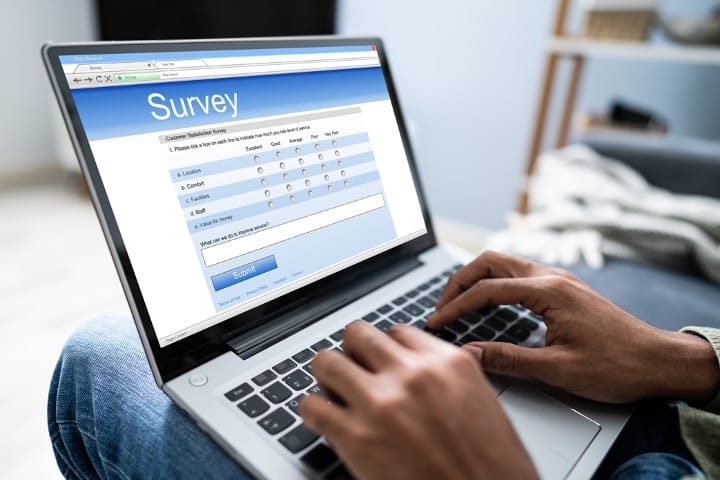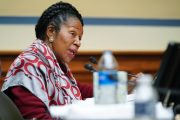
“Unprecedented and unethical.” So said late Democrat pollster Pat Caddell, commenting on a cooked October 2016 NBC/WSJ poll that showed Hillary Clinton leading Donald Trump by 14 points less than a month before she would lose to him in that year’s presidential contest. Errant political polls are nothing new, and one general pattern is that they tend to underestimate Republican support — doing so in 2020 by four to five points.
And this year is no exception, says Randy Ellison, a public opinion and market research consultant and president of Targoz Market Research. Writing at The Hill recently, he asks, “Are we facing another big polling miss?” His answer: “Probably.”
Ellison mentions typical theories used to explain this Democrat-polling-bias phenomenon: Trump/GOP voters’ reluctance to respond to polls, errant likely-voter models, and a dearth of respondents without college degrees (blue-collar citizens tend to vote Republican).
Ellison informs that the American Association for Public Opinion Research issued a major report on the 2020-election polling problems, but couldn’t determine the pro-Democrat bias’ cause. Yet the cause is simple, the market research consultant asserts — and is well known in his business.
As Ellison writes:
Over the past decade, the number of fictitious accounts, bots, and click farms employing large-scale automation to answer surveys and polls has rapidly grown.
As opinion researchers have made the necessary transition to online from phone data collection, we’ve become dependent on panel companies recruiting compensated respondents to complete our surveys and polls. Panelists earn money by completing surveys on topics ranging from their planned auto purchases, interest in a new product, or on their voting intentions in the next election.
While survey panel suppliers claim they are taking steps to curb fraudulent respondents from our polls, the industry knows bots and click farm problems are rampant.
Industry research conducted in 2021 on behalf of the Insights Association found that 15 percent to 25 percent or more of completed online non-political surveys have quality issues due to:
1. Individuals/organizations using various fictitious accounts
2. Bots and click farms employing large-scale automation to complete many surveys
3. Professional survey takers who are completing up to 25 surveys per day
What’s more, these issues aren’t confined to opinion research, claims Ellison. “Spotify is plagued by click farms and fake listeners inflating the listens of a song,” he writes. “App stores for Apple and Google are fighting fake reviews boosting sketchy apps. Amazon’s problems with phony reviews are legendary, and advertisers have long fought click fraud. Fraud is a universal problem across industries, including the opinion research industry.”
He then states that his company’s investigations found that almost 33 percent of 2020-’21 online poll respondents were not “real average people.” Related to this, do note, a top cybersecurity expert claimed recently that more than 80 percent of Twitter accounts are likely just bots.
Moreover, just as Twitter perhaps has an incentive to not eliminate all its fake accounts, it also benefits the survey panel companies to ignore the fraud in their midst, says Ellison. That is to say, these companies’ clients want 48 percent of respondents to be male, yet male respondents are hard to come by. As a result, people bent on responding fraudulently (called “abusive” respondents) are likely to describe themselves as white, male, and aged 25 to 44. The survey panel companies do have fraud-detection software to combat this, says Ellison, but may not even use it because eliminating respondents would threaten their bottom line.
So the bottom line, concludes Ellison, is that pollsters must implement their own fraud-detection measures, lest they once again be embarrassed by missing the 2024 election results. He says the probability is high that Republican support is being underestimated, as his firm’s research indicates that abusive respondents’ numbers are growing — and that the problem is especially egregious in political surveys.
Aside from Ellison’s expert insight, there are some other theories pertaining to polls’ errancy:
- Some believe it’s a cover for vote fraud. After all, if a GOP candidate is polling three points behind his Democratic opponent but is actually ahead by two and then loses by one due to vote fraud, apologists can say, “How can you allege cheating? The Republican outperformed the polls!” Of course, errant polls can serve this purpose even if their errancy is due to incompetence.
- It’s also claimed that the purpose could be to dishearten GOP voters. And as with the above, errant polls can have this effect even if conducted with good intentions.
- I’ve heard Republicans say they’ve lied to pollsters and claimed they were supporting Democrats. This may be their way of acting out against the system.
- Some people may not want to express support for politically incorrect candidates (e.g., Trump) to pollsters.
- Are poll respondents really an accurate cross-section of America? What kind of people will, in general, respond to surveys? Many responsible middle-class people may be too busy to take the time. The guy living in his mother’s basement on the other hand…
While reading nefarious motives into errant polling is understandable (and could sometimes be reality), relevant here is the saying, “Never attribute to malice what is better explained by stupidity” — and greed. Polling companies do need to stay in business and make money, so they certainly have at least one good reason to get things right.
Whatever the case, Americans have even better reasons to get things right in November — and they won’t do that by listening to pollsters.



